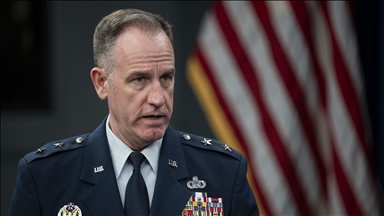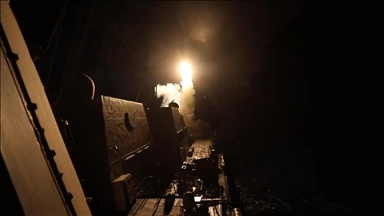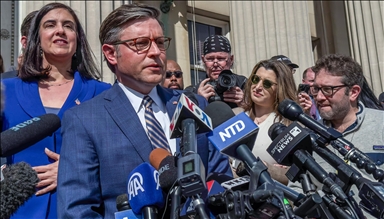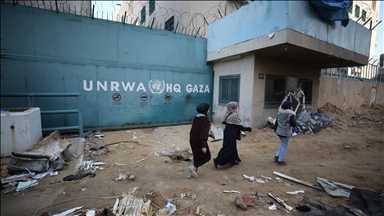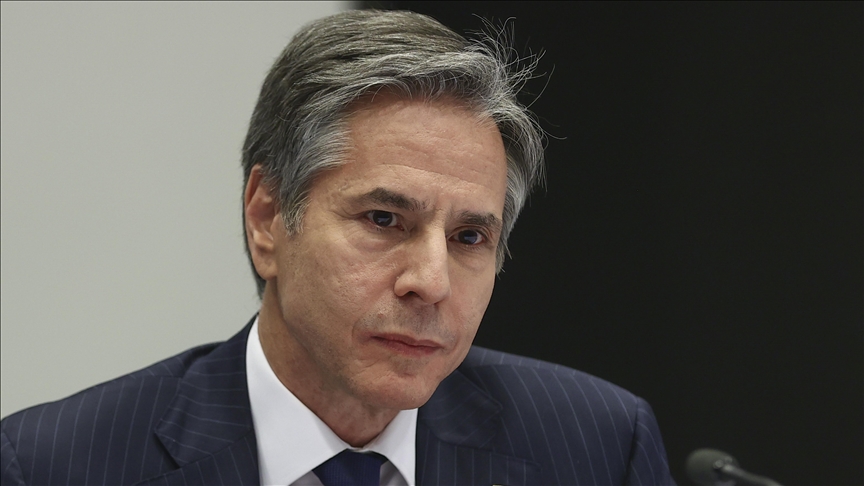 FILE PHOTO
FILE PHOTO
WASHINGTON
The diplomatic window to address Iran's nuclear program is rapidly closing as Tehran's leaders refuse to come to the negotiating table, Secretary of State Antony Blinken warned on Wednesday
Addressing reporters following a bilateral summit with his counterparts from Israel and the United Arab Emirates, the top US diplomat said "time is running short" to return to mutual compliance under the 2015 Joint Comprehensive Plan of Action (JCPOA) as Iran continues to advance its nuclear program.
"We’re getting closer to a point at which returning to compliance with the JCPOA will not in and of itself recapture the benefits of the JCPOA, and that is because Iran has been using this time to advance its nuclear program in a variety of ways," he said, point to Iran's advancements in uranium enrichment, advanced centrifuges, and pivotally, acquiring specialized knowledge.
"With every passing day, and Iran’s refusal to engage in good faith, the runway gets short," he said.
Blinken and Israeli Foreign Minister Yair Lapid warned of "other options" should Tehran not change course, with Tel Aviv's envoy making no qualms about those might be.
"If a terror regime is going to acquire a nuclear weapon, we must act. We must make clear that the civilized world won’t allow it," he said. "If the Iranians don’t believe the world is serious about stopping them they’ll race to the bomb. Israel reserves the right to act in any given moment in any way. That is not only our right. It is our responsibility."
US President Joe Biden has attempted to bring the US and Iran back to mutual compliance with the JCPOA, which placed an unprecedented international inspection regime on Iran's nuclear program in exchange for billions of dollars in relief from international sanctions. The effort to return to compliance has been vocally opposed by Israel.
Former US President Donald Trump unilaterally withdrew from the pact in 2018 and went on to pursue what his administration called a "maximum pressure" campaign against Tehran geared at bringing Iran back to the negotiating table by reimposing sanctions and adding new ones to a laundry list of penalties, which was ultimately futile.
Iran, in retaliation, has stepped back from its commitments under the agreement and continues to do so.
A sixth round of talks aimed and returning the US and Iran to mutual compliance under the pact concluded in June in Vienna, but that month President Ebrahim Raisi, a more hardline figure compared to his predecessor, was elected to office and suspended Tehran's participation.
Hossein Amir-Abdollahian, Raisi's foreign minister, said Oct. 6 that Iran is completing preparations to resume talks in Vienna, but did not offer a timeline on when that may happen.
"In the near future we will decide on the terms of the return to negotiations," he said in Moscow after meeting with his Russian counterpart.
Anadolu Agency website contains only a portion of the news stories offered to subscribers in the AA News Broadcasting System (HAS), and in summarized form. Please contact us for subscription options.



